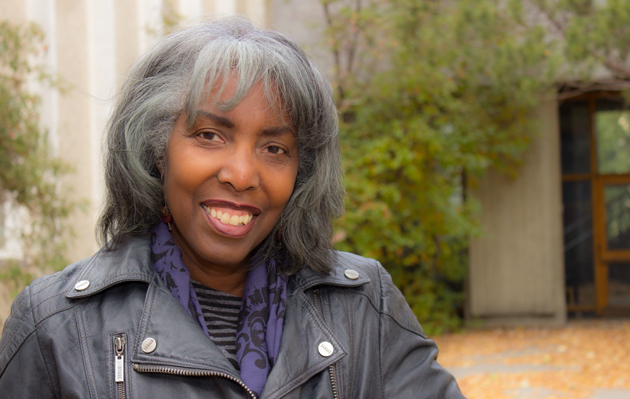
“Frankly as human beings we all have a tendency to be more wary and distrustful of anyone who is not like ourselves. Also there has recently been a lot of discussion about who has the right to tell other cultures’ stories and my play touches on that topic. As our society becomes more diverse it is important to talk about this and to understand how to respectfully approach the telling of stories about other cultures. I don’t think it is wrong to write stories or make movies about others but one should always think about how to do so in a respectful and mindful manner.” – Playwright Maria Crooks
Maria Crooks is an emerging Calgary playwright who began writing plays after retiring from a corporate job in the oil industry in 2011. She describes her most recent play, The Mary Mink Story, as a play about untrammeled ambition, ruthlessness and deceit and one man’s relentless efforts for the truth to be told.
JAMES HUTCHISON
Maria, what attracted you to playwriting as opposed to novels, short stories, poems or other forms of writing?
MARIA CROOKS
I’ve always had a passion for writing and in the past I’ve taken a number of writing courses including poetry and short story writing. I decided to try playwriting because it was a new kind of writing for me and because I don’t like doing research and I mistakenly thought that writing plays wouldn’t require doing much research. Despite discovering that I was wrong about the amount of work it takes to write a play, I was hooked when at the end of the first course, the instructor brought in two professional actors to read scenes from the plays we had written in class. It was so thrilling to have the characters I had created, in my head, come to life before me that I’ve been writing plays ever since.
JAMES
You know I find it inspiring that you’ve come to playwriting later in life and I think that’s a great thing. I think people should go after their dreams no matter what their age. What motivated you to go after this dream?
MARIA
I love the theatre and I love acting and in fact after retiring I started taking acting courses and I’ve acted in a couple of plays since then. I also love words and writing and so the acting led to the writing of plays and somehow the writing has taken centre stage as it were, at least for the time being.
JAMES
A few years ago, I went to When Words Collide, an annual writers and readers conference here in Calgary, and heard American fantasy and science fiction author Brandon Sanderson talk about writers being either gardeners or architects. Gardeners are writers who plant seeds and see what grows. In other words, they just sit down and start writing. Architects are writers that like to make a blueprint before they start writing. Which are you?
MARIA
I believe I’m naturally a gardener. Even at university when I had to write papers I had difficulty following structure and pattern. I find following a blueprint a bit confining. However, over the years, I’ve discovered the usefulness of having a blueprint. It’s particularly important when writing a play where you have to know everything about the background of the characters you’re writing about before you start writing because it grounds them and informs their choices and will make your play and the characters more realistic and believable.
JAMES
Okay I have to ask, one of your earlier plays is a play called Age of Love – and it’s about a romantic relationship between a younger man and a much older woman – where did that story come from?
MARIA
I was listening to the program As It Happens on CBC radio about two years ago when they were rebroadcasting episodes from their archives. I heard an interview with a young man who in 1976 was 21 years old, and had fallen in love with his 76 year-old step-grandmother who had recently been widowed and he was determined to marry her despite his parents’ protests. At the time I was looking to write a play examining sexuality and I thought the story of love between two people with such a huge age difference would be intriguing to explore and write about.
JAMES
As you were writing that play what did you discover about your own thoughts and society’s thoughts concerning love, sex and age.
MARIA
I wrote the play as a comedy: I thought it was very funny and odd for a young man to fall in love with wrinkles and false teeth, but as I wrote it, I fell in love with my characters and I realized that romantic love comes in different forms and the usual pattern of boy meets girl who is young and beautiful is only just one of many ways for people to fall in love.
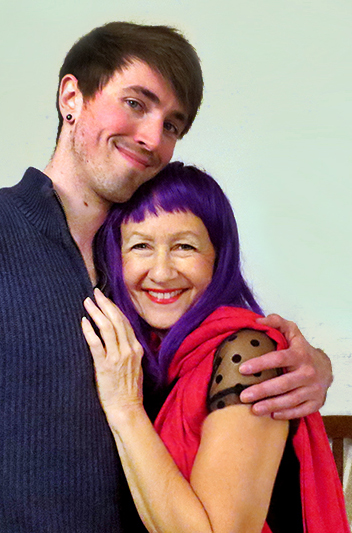
JAMES
It was produced so I’m curious what the audience’s reaction to the play was.
MARIA
I was very pleased with the reaction of the public, in fact it got good reviews* and elicited a lot of laughs. To this day, I will be at a dinner party or be at some other social function and friends or other people who have seen the play will approach me and want to talk about it. This happens way more often than with any other play I’ve written. Many wonder if perhaps I had been in a relationship with a younger man and that is the reason I wrote the play.
I also did research on gerontophilia, which is a little-known sexual preference for the elderly, and I printed an article to post at the theatre for the audience to read so they would know that this sort of love is possible and that I didn’t just write it out of wishful thinking.
JAMES
You mentioned that people thought the story for Age of Love came from personal experience but even though the specifics of that story aren’t about your life how much of your own life experience do you find you put into your writing?
MARIA
I think it’s inevitable that my own experiences will seep into my writing consciously or unconsciously.
When I was a child we moved from Cuba to Jamaica and after the move my parents couldn’t find an item, it’s been so long now I can’t remember what it was, but they immediately assumed it had been stolen by the woman who had been helping with the packing. This woman had been a family friend and my parents never responded to her letters because of the assumption that she had stolen from them. Many years later they found the missing item but by then it was too late, the friendship had been broken.
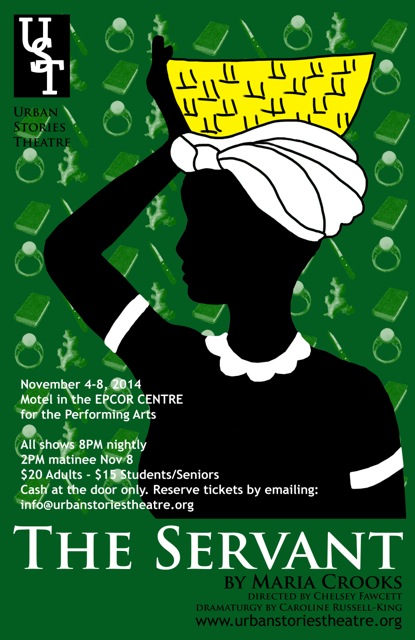
That story became the basis of my first play, The Servant, which is a story about a servant who is accused of having stolen a valuable ring which was subsequently found. I wanted to examine the nature of trust and how quickly it can be eroded when we jump to conclusions. In that same play I included a scene from a revival church meeting I witnessed as a child with a woman getting into the spirit and whirling around while speaking in tongues.
So yes, my experiences do enter my plays from time to time.
JAMES
Your current play is The Mary Mink Story. What is that play about?
MARIA
The Mary Mink Story is about a black woman who lived in Toronto in the mid-19th century. Her father, James Mink, was a prosperous businessman who owned a hotel and livery stables and had several lucrative government contracts delivering mail and so forth. According to several historical accounts, which I found online and in books, James Mink placed an ad in the Toronto papers offering $10,000 for a white man to marry his daughter. A white man married her and promptly took her across the border to the US where she was sold into slavery. The story was so intriguing that I felt compelled to write a play about it, however my research led me to a researcher from York University in Toronto who has done extensive work on James Mink and his family and she provided me with information which disproved the story.
JAMES
After doing your research and finding out the real story – how did that impact your play?
MARIA
I found myself in a dilemma. I felt the story was so dramatic that I wanted to tell it, but at the same time I didn’t wish to perpetuate the myth which is based on racism and bigotry and I didn’t want to be a part of that. I, therefore, decided to tell the myth while at the same time debunking it. This has been my most difficult play to write and my hope is that I have succeeded in exposing the myth while at the same time telling an interesting Canadian story.
JAMES
Why do you think this story needs to be told?
MARIA
I felt this was a story about a black family that needed to be told and I had a responsibility to set the record straight. A TV movie about the Minks was made in the 1990s and it too recounted the myth as if it were true. Wikipedia has an account of James Mink and that account does not say that it is a myth either so anyone coming across the movie or reading the Wikipedia account will come away believing it to be true.
JAMES
Why do you want to set the record straight? To tell the truth about what really happened?
MARIA
I feel a responsibility to James Mink and to his daughter to set the record straight because both were real people who were respectable and hard-working intelligent folk who do not deserve this continued insult to their memory. James despite his humble beginnings rose to become a prominent citizen of his community both he and Mary were proud of their African heritage and it is inconceivable that he would have made the offer he was purported to have made in order to get his daughter married.
JAMES
You’ve been able to work with Urban Stories a local theatre company here in Calgary on the development and production of your plays. What’s that been like?
MARIA
As an emerging playwright, collaborating with Urban Stories Theatre has been really advantageous. I met the founder and Artistic Director, Helen Young at an actors studio a few years ago and she encouraged me to expand a short play I had written into a full-length play which she then produced and presented as a main stage play. Urban Stories has a mandate to promote and support local playwrights and to that end they put on playwriting workshops, help budding writers through the dramaturgical and workshop process and will produce works which they feel fulfill their mandate of examining social justice issues.
Urban Stories has produced two of my full-length and two of my short one-act plays and we’re planning to produce the The Mary Mink Story at some point in the future. I originally had no intentions of offering this play to Urban Stories or anyone else for that matter because I had reached an impasse with the play and didn’t know how to move forward with it. I knew I wanted to expose the myth but I didn’t know how to do it, so I had put it away. Then I happened to mention to Helen that I had this play that I had more or less discarded and she asked to read it. She did and next thing I knew she said she wanted to produce it. So now I’m working with Urban Stories as well as dramaturge Caroline Russell-King, so that the play can be produced.
JAMES
Speaking of Urban Stories’ mandate to examine social justice issues what are you hoping audiences will get out of your telling of The Mary Mink Story?
MARIA
First of all, I hope they will find it entertaining and enjoyable but I also want people to see how easily lies can be created and perpetuated. This myth was born out of jealousy and dislike of the “other” and it persists even today.
JAMES
I assume you’re referring to the “other” as in immigrants or people of different race or nationality.
MARIA
Yes, I’m referring to immigrants and minorities but frankly as human beings we all have a tendency to be more wary and distrustful of anyone who is not like ourselves. Also there has recently been a lot of discussion about who has the right to tell other cultures’ stories and my play touches on that topic. As our society becomes more diverse it is important to talk about this and to understand how to respectfully approach the telling of stories about other cultures. I don’t think it is wrong to write stories or make movies about others but one should always think about how to do so in a respectful and mindful manner.
JAMES
Anything else you’d like to add about the play or writing or art or who you think is going to win the Grey Cup this year?
MARIA
I think theatre is important and it’s very pleasing how much good theatre there is to see in Calgary. We live so close to the US and their plays and playwrights tend to dominate so I think it’s very, very important to foster our own Canadian playwrights and their work. As for who will win the Grey Cup, I’m afraid I know nothing about football so, I won’t even hazard a guess.
***
Maria Crooks is a Calgary playwright whose plays are often inspired by real events which she uses as a starting point for her fictional work. You can contact Maria by at catalinaver13@gmail.com if you’d like more information or if you’d like to obtain copies of her plays.
FULL-LENGTH PLAYS
- The Servant is a play set in early 1960s Jamaica and Canada. It’s about a poor servant woman and her desperate efforts to achieve a better life for herself and her children despite the many forces arranged against her.
- The Age of Love is a wacky comedy about an inheritance, a free-spirited step-grandma, a libidinous young man, his jealous mama, a weirdly eccentric German doctor and a ruthlessly ambitious talk show host. Non-stop hilarity ensues when these unlikely characters come together on a tabloid TV show.
- The Mary Mink Story is a play about untrammelled ambition, ruthlessness and deceit and one man’s relentless efforts for the truth to be told.
SHORT PLAYS
- Dreamboat is a 15 minute play about a plain young woman’s dreams of finding true love
- La Mère, La Mer is a short play about a young mother’s descent into insanity and the unfathomable act she commits after the birth of her child.
* Review: The Age of Love Turns the Taboo Into Something Sweet by Rodrigo Flores
***
Urban Stories Theatre is focused on supporting local playwrights writing about social justice issues by nurturing their ideas from first draft to finished production. The company is made up of a core group of local artists who oversee all productions and workshops. Budding actors, directors, stage managers and designers are encouraged to share their ideas by becoming part of the team on a show by show basis.
Vision: To give local artists a voice in creating theatre that tells real stories about real life.
***
This interview has been edited for length and clarity.
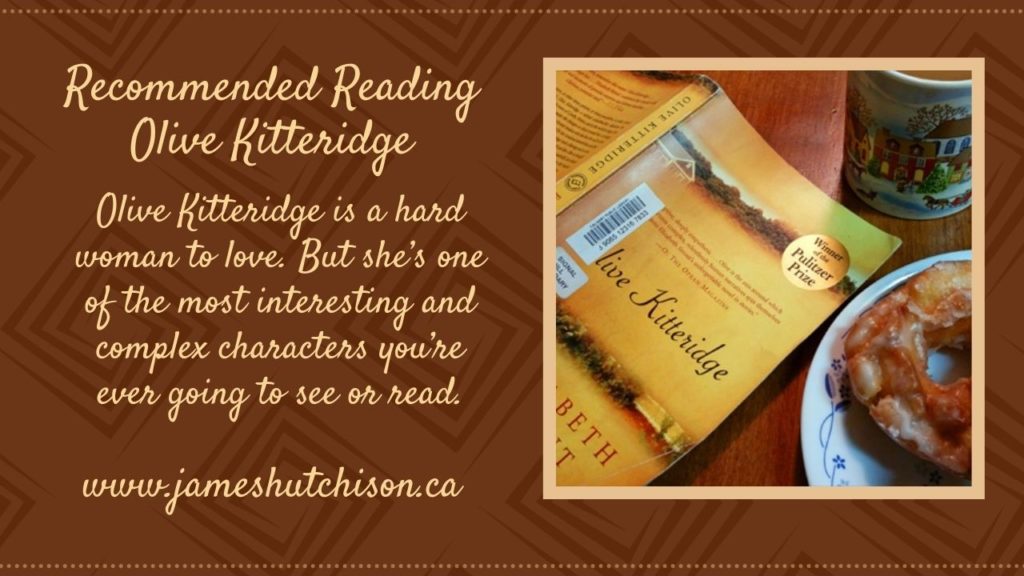
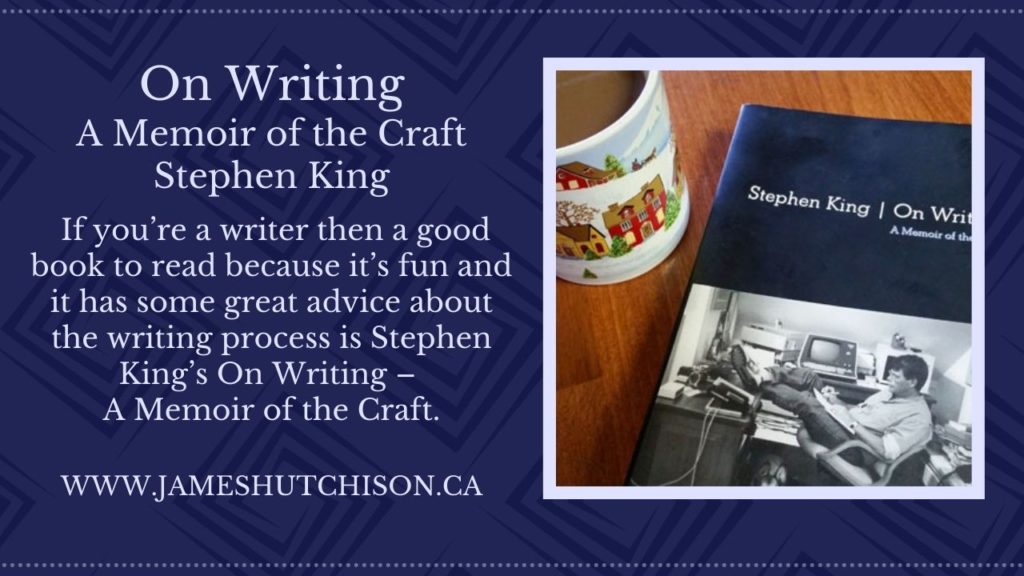
Ms Crooks is such an inspiration for me. I actually flew to Calgary from Montreal to see her first and second full-length plays, so you can say that I’m a tried and true fan! Age of Love and The Servant are quite different thematically, but Ms Crooks has the ability to create believable characters, whatever the subject matter. You see the human experience unfolding in front of you, in all its serious, quirky and endearing aspects. The actors played to a (very receptive) full house at all the performances I attended. Given that most of this literary development began seriously upon retirement, I would say that Ms Crooks is a real opsimath –a word I only learned this week! 🙂
Hi Eva,
Thank you for your glowing review of my work, I’m so pleased that you enjoyed seeing my plays. I just looked up the meaning of opsimath and I do indeed feel like I’m one.
BTW my new play the Mary Mink will be produced May 6-12 of next year by Urban Stories Theatre. I hope you will be able to attend.
Regards,
Maria
Congratulations, my dear Maria, I think you are Fabulous! and a Wonderful Inspiration!! I wish you, ongoing, great success!
Much love,
Brenda
Hi Brenda, It is so heart-warming to read your comments.
Thank you so much,
Maria